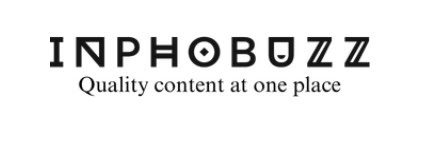Pakistan FATF - Financial Action Task Force and Grey List Removal
What is Financial Action Task Force (FATF)
Financial Action Task Force (FATF) is an intergovernmental organisation. It is in charge of making decisions on money laundering and terror financing. It was established in 1989 during the G7 Summit in Paris to work on the development of policies to combat money laundering stages and terrorist financing. As a result, it is the policy-making body's responsibility to generate political will in order to bring national legislative power and regulatory reforms to combat money laundering and terrorist financing.
Mandate
Following the 9/11 attacks, the FATF pursued mandatory expansion to combat terror financing. It was in April 2012 that efforts were made to combat terror financing while providing weapons of mass destruction in the world effectively, and the FATF 40 recommendations or FATF standards were developed to ensure that the Global Response is based on coordination to combat organised corruption, crime, and terror activities.
Around the world, 200 jurisdictions have committed to working on the FATF 40 recommendations, as well as the network of nine FATF style regional bodies and memberships.
Headquarter
The secretariat's headquarters are in Paris, at the Organization for Economic Cooperation and Development.
Composition
Currently, the Financial Action Task Force is constituted of 37 member countries and two regional organisations, including the Gulf Cooperation Council and the European Commission. They represent the world's major financial centres.
Grey List
AML/CFT (Anti-Money Laundering/ Combating Terror Financing)
FATF is closely monitoring the countries on the grey list, where the style regional bodies make decisions to achieve the AML/CFT goals. Countries on the grey list, for example, will be required to meet the requirements for their financial transactions. Countries on the grey list, in particular, will be required to complete AML/CFT forms to ensure that no transactions are conducted for the purpose of money laundering or terrorist financing. To ensure non-funding for terrorism, FATF is working on domestic terrorism prevention act of 2022.
Countries on the grey list may face difficulties or economic sanctions from international institutions such as the World Bank and the International Monetary Fund. They also have a greater impact on trade due to the country's unusual and stable conditions. There is a risk for investors that will have a significant negative impact on the country's economy.
Countries in Grey List
Consequences for Being in Grey List
India Vs. Pakistan FATF
Pakistan was on the Grey List and was struggling to meet the FATF's action plan points. It was the high time in Pakistan to work on the action plan. India, on the other hand, joined the FATF in 2010. The country is also a member of regional groups such as the European Group EAG and the Asia Pacific Group APG.
FATF Pakistan
Pakistan was added to the Grey list in 2008 and removed in 2010. However, increased monitoring was implemented from 2012 to 2015. Pakistan has been on the grey list since 2018 and has not been removed for failing to meet the strategic requirements. The Financial Action Task Force then went after Pakistan's 27-point failure and exit from the grey list in June 2018. The action plan was based on combating terror financing and money laundering, and the country's parallel action plan was moved in 2019 to the regional partner of the Financial Action Task Force, which is an Asia Pacific group.
According to FATF (2022), Pakistan FATF with joint efforts completed 26 points of action plan out of 27 under Imran Khan's government until 2021.
Pakistan was removed off the grey list on October 21, 2022, after meeting the FATF action plan criteria. However, it has also been determined to continue monitoring financial operations in order to completely ensure the country's safe financial transactions. The decision came after Hafiz Saeed was sentenced to 33 years in prison.
In July 2019, there was a 6 billion US dollar IMF loan process in contract to comply with the Financial Action Task Force action. Despite receiving loans from the IMF, China, and Saudi Arabia, Pakistan's economy was in poor shape, with low foreign exchange reserves. The main reason was that Pakistan had no opportunities for foreign direct investment. It was because every investor was concerned about the risk associated with the country, which could end up on the blacklist if the 27 points of the Action Plan are not met.















0 Comments
If you have any suggestions, please comment